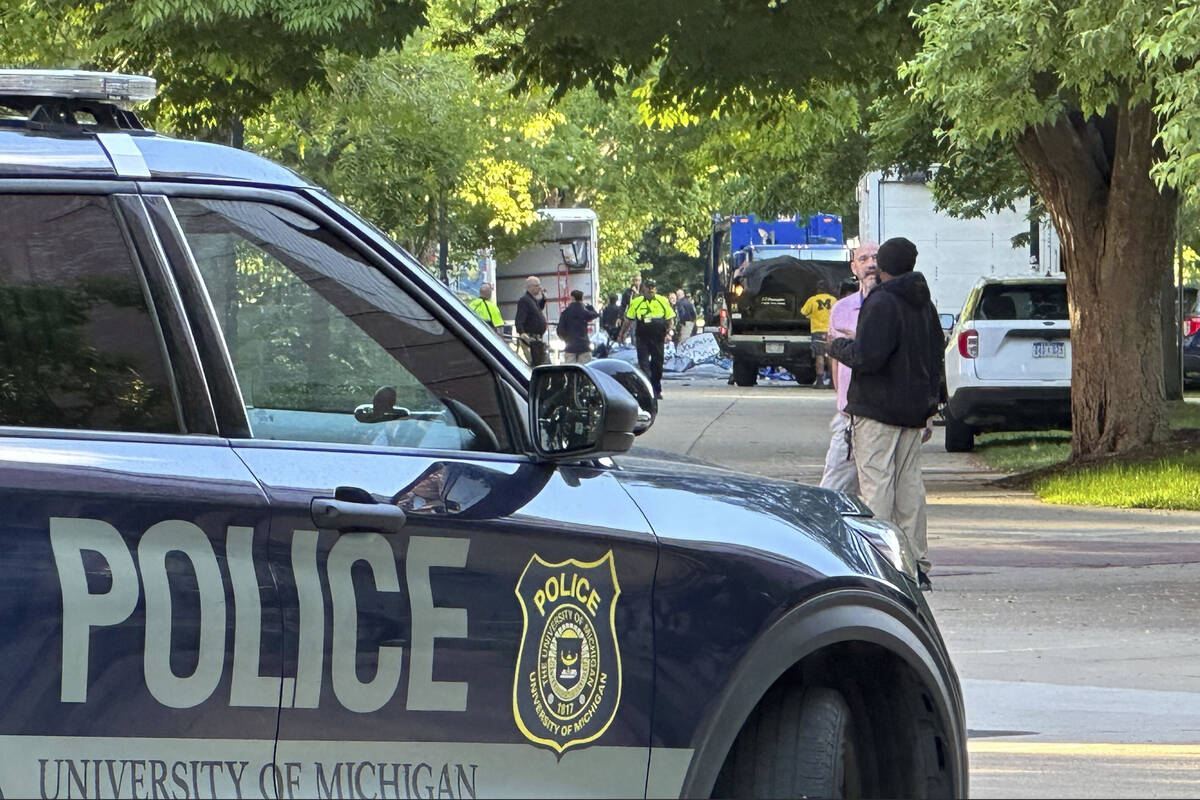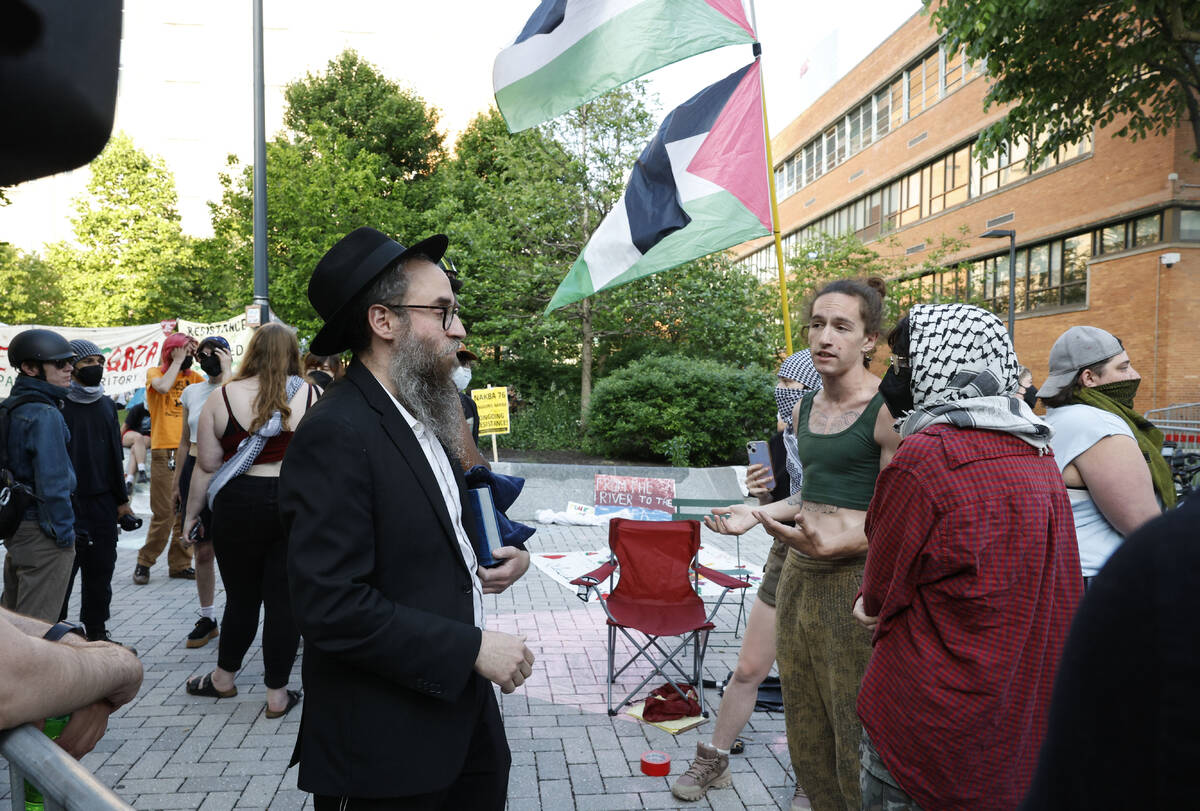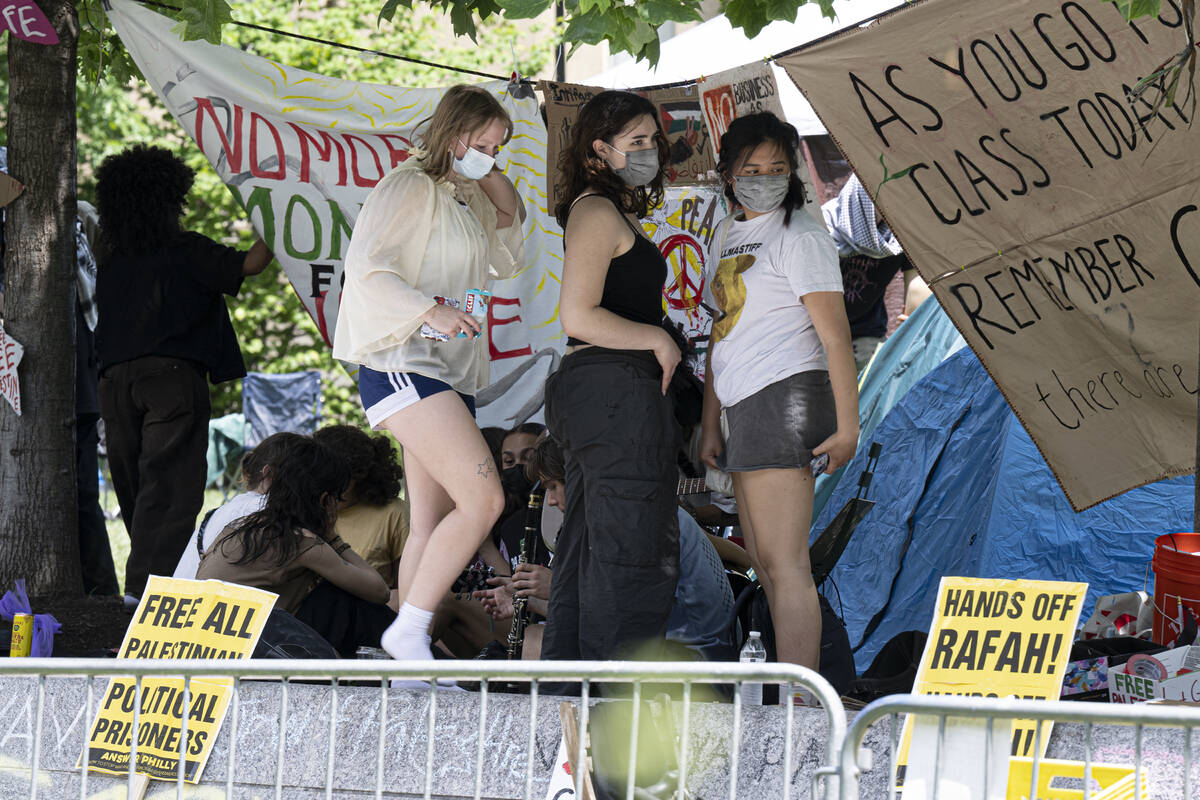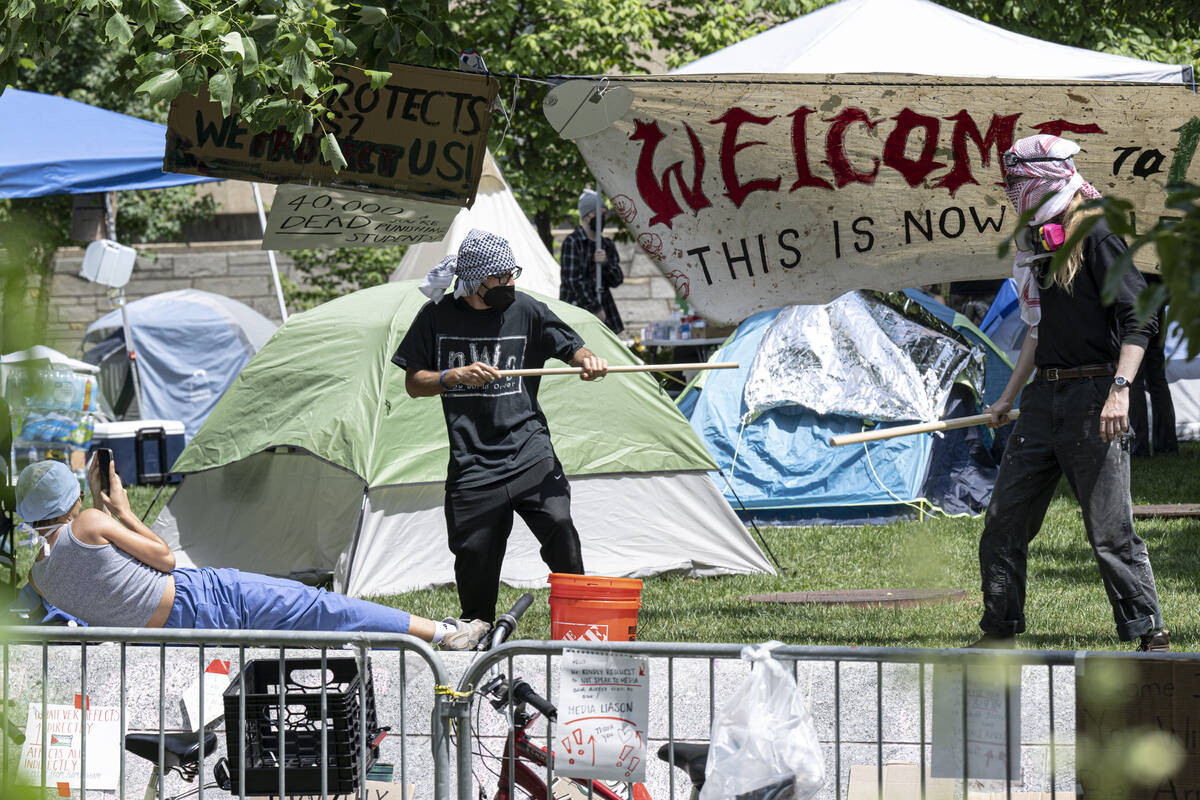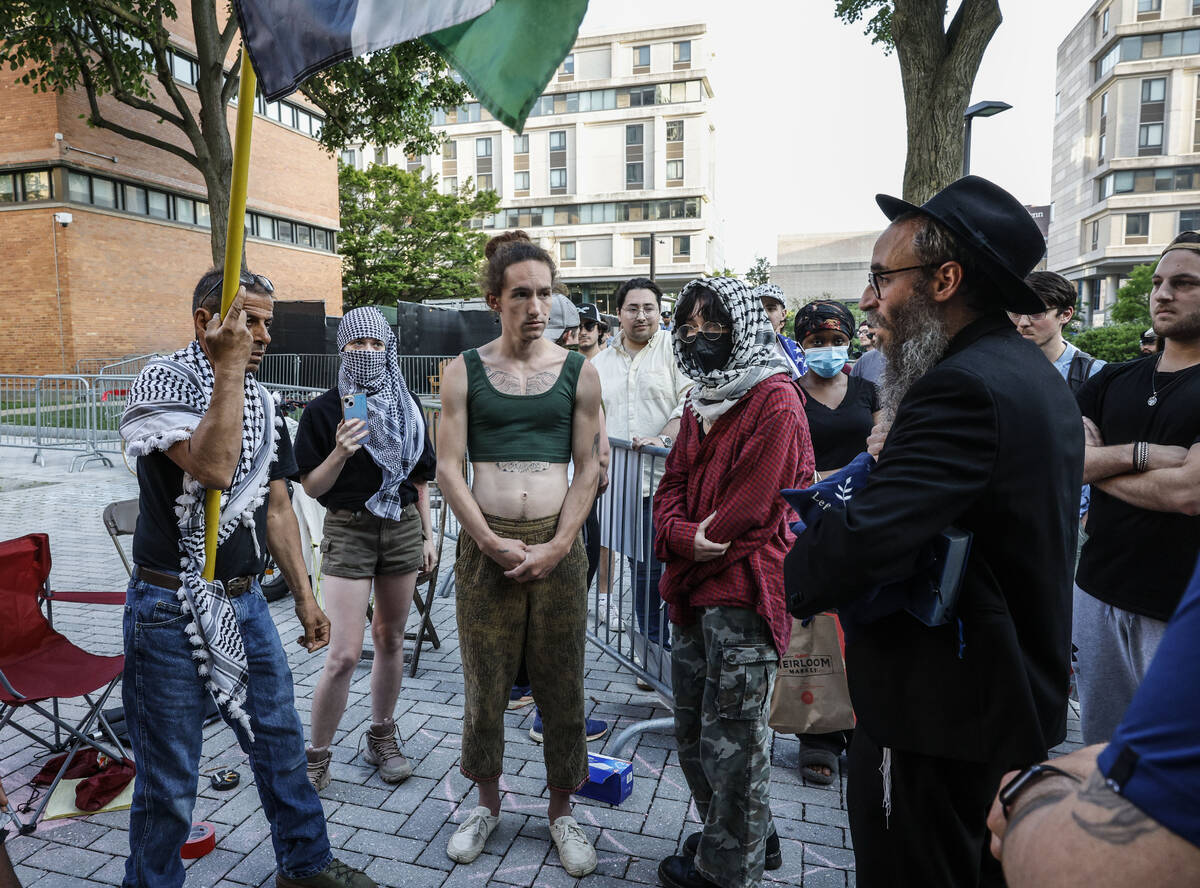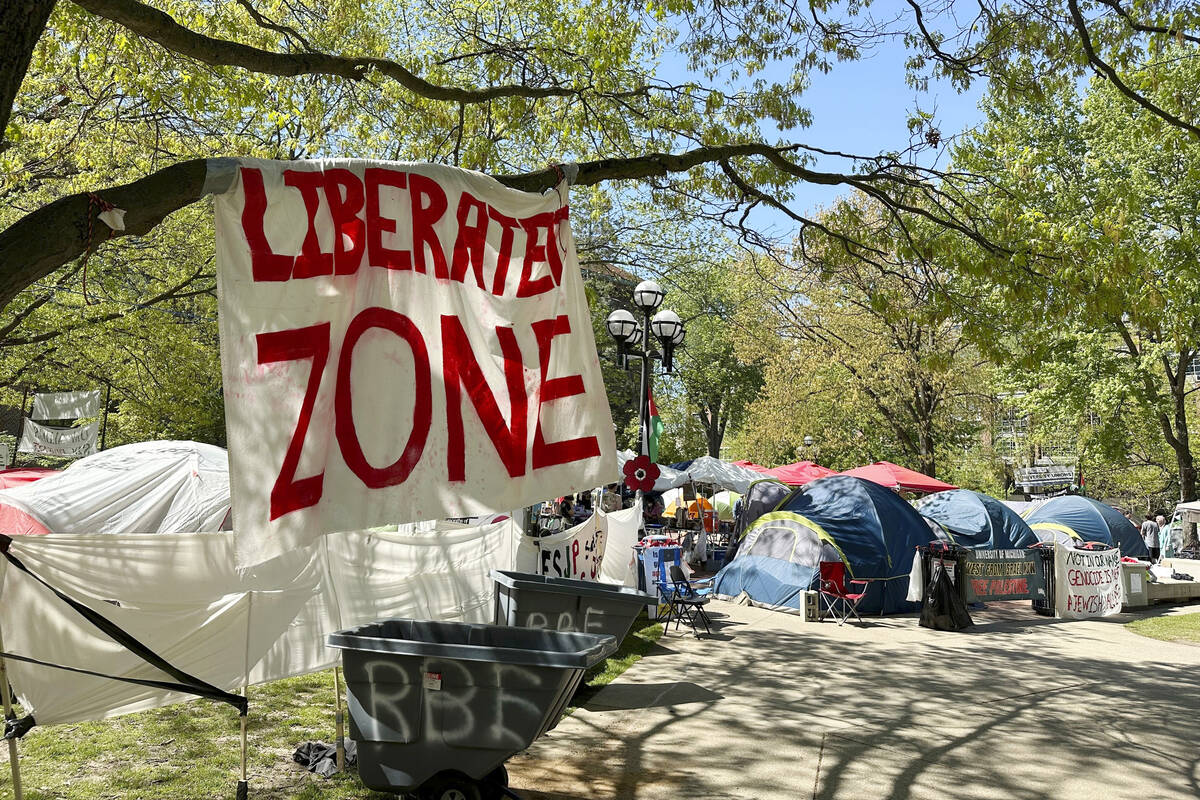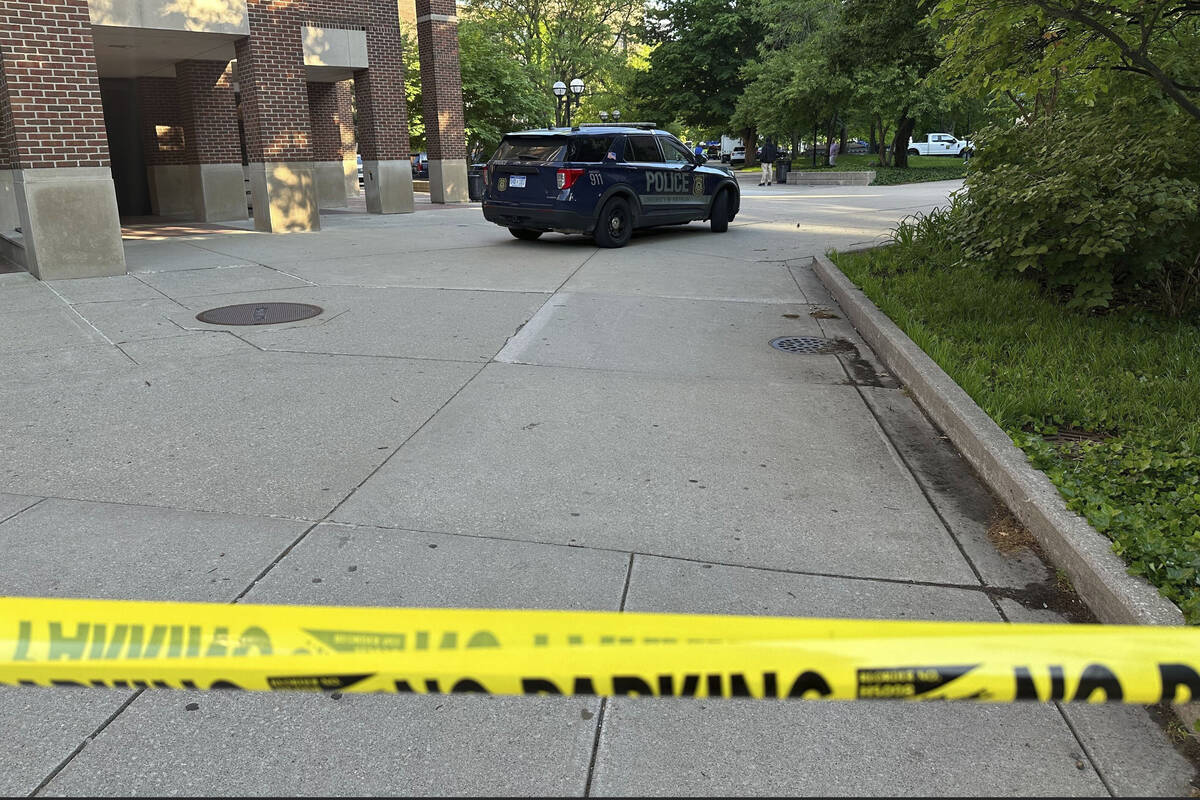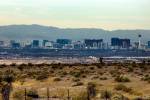Police break up pro-Palestinian camp on Michigan campus
ANN ARBOR, Mich. — Police broke up a pro-Palestinian encampment at the University of Michigan before dawn Tuesday, citing a threat to public safety and coming less than a week after demonstrators stepped up pressure by placing fake body bags on the lawn of a school official.
Officers wearing helmets with face shields cleared approximately 50 people from the Diag, known for decades as a historic site for campus protests. Video posted online showed police using what appeared to be an irritant to spray people, who were forced to retreat.
At least four people were arrested, which caused protesters to shift to the Washtenaw County jail where they marched outside in support of their allies.
The campus encampment was set up on April 22, near the end of the school year and just before families began arriving for spring commencement. Posters taunting President Santa Ono and other officials were also displayed.
After the camp was cleared, nearby buildings including the undergraduate and graduate libraries were closed and police turned away students who showed up to study.
Ono said in a statement that the encampment had become a threat to safety, with overloaded power sources and open flames. Organizers, he added, had refused to comply with requests to make changes following an inspection by a fire marshal.
“The disregard for safety directives was only the latest in a series of troubling events centered on an encampment that has always violated the rules that govern the Diag — especially the rules that ensure the space is available to everyone,” Ono said.
Protesters have demanded that the school’s endowment stop investing in companies with ties to Israel. But the university insists it has no direct investments and less than $15 million placed with funds that might include companies in Israel. That’s less than 0.1 percent of the total endowment.
“There’s nothing to talk about. That issue is settled,” Sarah Hubbard, chair of the Board of Regents, said last week.
A group of 30 protesters showed up at Hubbard’s house on May 15 and placed stuffed, red-stained sheets on her lawn to resemble body bags. They banged a drum and chanted slogans over a bullhorn.
People wearing face coverings also posted demands at the doors of other board members.
“This conduct is where our failure to address antisemitism leads literally — literally — to the front door of my home,” board member Mark Bernstein, a Detroit-area lawyer, said at a Regents meeting last Thursday. “Who’s next? When and where will this end? As a Jew, I know the answer to these questions because our experience is full of tragedies that we are at grave risk of repeating. Enough is enough.”
Students and others have set up tent encampments on campuses around the country to press colleges to cut financial ties with Israel. Tensions over the war have been high on campuses since the fall, but demonstrations spread quickly following an April 18 police crackdown on an encampment at Columbia University. Arrests at campuses have surpassed the 3,000 mark nationwide.
Drexel University in Philadelphia on Monday threatened to clear an encampment, with the campus on lockdown, classes being held virtually and police monitoring the demonstration.
Many Drexel employees were told to work from home. President John Fry said late Monday that the encampment had disrupted campus life and “cannot be allowed to remain in place.”
In other developments:
— The New School reached a deal on Monday with pro-Palestinian protesters to dismantle a campus encampment in exchange for a vote to divest from Israel. The investment committee of the downtown Manhattan school’s Board of Trustees will vote on or before June 14 and publicly announce the results and rationale for their decision, according to an announcement to students and faculty. The vote will become binding after full approval of the board.
— Nearly 500 faculty and staff at Harvard called on university leadership to drop disciplinary actions against pro-Palestinian student protesters following their encampment at the school in a letter Monday. About 35 students are facing academic sanctions, including measures preventing students from graduating and making some withdraw for multiple semesters, for taking part in the pro-Palestinian protest encampment in Harvard Yard, Harvard Out of Occupied Palestine (HOOP) and other student groups said over the weekend.
— A Davis resident is suing the University of California, Davis, and its top administrators for the school’s handling of the ongoing pro-Palestinian encampment on campus. Jonathan Groveman, a pro-Israel member of the Davis Oct. 7 Coalition and a counterprotester to the encampment since it began May 6, has filed a lawsuit alleging UC Davis is supporting the encampment that has violated his First and 14th Amendment rights, as well as his ability to use a path through a busy part of campus.



